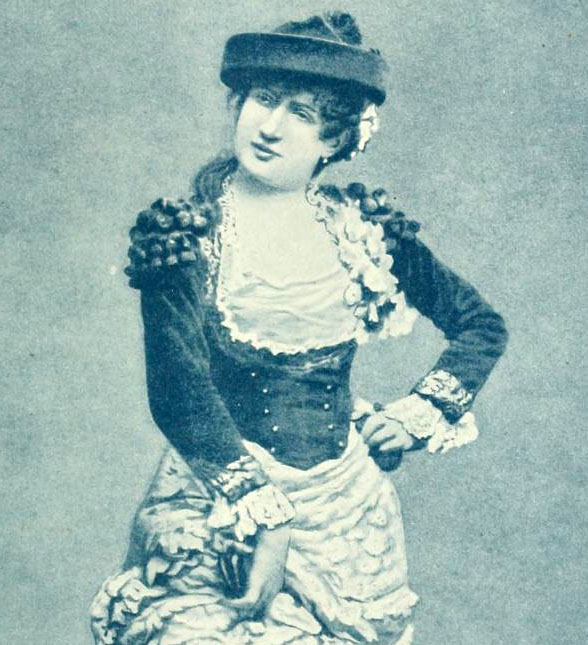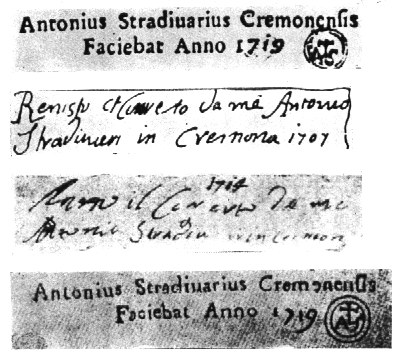|
Auguste Van Biene
Auguste van Biene (16 May 1849 – 23 January 1913) was a Dutch composer, cellist and actor. He became best known for his composition ''The Broken Melody'', performed by the composer as part of a musical play of the same name. Van Biene grew up in Rotterdam and displayed a musical interest as a youth. After some private studies with Adrien Francois Servais at the Brussels Conservatory he moved to London to seek work as a performer. Van Biene was discovered by Michael Costa (conductor), Sir Michael Costa, who hired him to play the cello in his Royal Opera House, Covent Garden orchestra in November 1867, eventually promoting him to principal cellist. In 1878 van Biene was a touring musical director for Richard D'Oyly Carte's D'Oyly Carte Opera Company, Comedy Opera Company, and in the 1880s he conducted successful light operas and Victorian burlesques. By the 1880s he had also become a theatrical manager as well as an actor and playwright. As a cellist he was invited to be an ... [...More Info...] [...Related Items...] OR: [Wikipedia] [Google] [Baidu] |
Francis Chassaigne
Francis Chassaigne (also known as Francisque Chassaigne) (30 October 1847 – 21 December 1922) was a Belgian-born French composer of operettas, songs, and numerous pieces of dance music for piano. The English-language versions of his operettas, ''Le droit d'aînesse'' (1883) and ''Les noces improvisées'' (1886) became very popular in Britain and the United States. Chassaigne was married to the Swiss-born operetta singer Louise Roland. Biography Born Désiré-François Chassaigne in Brussels in 1847, Chassaigne studied music there before settling in Paris. His first compositions were popular songs for the operetta stars of the day such as "Jeanne la Sabotière" for Thérésa (singer), Thérésa and "Peureuse" for Louise Théo. By the mid-1870s he had become a prolific composer of one-act ''opéra bouffe, opéras bouffes'' and ''saynètes'' (short musical plays) for the Café-chantant, café-concerts of Paris, most of which premiered at the Eldorado (theatre), Eldorado. In 1882, ... [...More Info...] [...Related Items...] OR: [Wikipedia] [Google] [Baidu] |
Stradivarius
A Stradivarius is one of the string instruments, such as violins, violas, cellos, and guitars, crafted by members of the Stradivari family, particularly Antonio Stradivari (Latin: Antonius Stradivarius), in Cremona, Italy, during the late 17th and early 18th centuries. These instruments are known for their craftsmanship, tonal quality, and lasting legacy, and are considered some of the finest ever made. Stradivari's violins, in particular, are coveted by musicians and collectors, with many selling for millions of dollars. Antonio Stradivari made over 1,100 instruments, with approximately 650 surviving today. The exact methods Stradivari used to produce the instruments' famed sound remain unknown, with theories ranging from the unique quality of the wood used during the Little Ice Age to the varnishes and chemical treatments applied. Despite extensive scientific research, including modern acoustic analysis and CT scans, no one has been able to conclusively replicate or fully expl ... [...More Info...] [...Related Items...] OR: [Wikipedia] [Google] [Baidu] |
Kingston Upon Hull
Kingston upon Hull, usually shortened to Hull, is a historic maritime city and unitary authorities of England, unitary authority area in the East Riding of Yorkshire, England. It lies upon the River Hull at its confluence with the Humber Estuary, inland from the North Sea. It is a tightly bounded city which excludes the majority of its suburbs, with a population of (), it is the fourth-largest city in the Yorkshire and the Humber region. The built-up area has a population of 436,300. Hull has more than 800 years of seafaring history and is known as Yorkshire's maritime city. The town of Wyke on Hull was founded late in the 12th century by the monks of Meaux Abbey as a port from which to export their wool. Renamed ''Kings-town upon Hull'' in 1299, Hull had been a market town, military supply port, trading centre, fishing and whaling centre and industrial metropolis. Hull was an early theatre of battle in the First English Civil War, English Civil Wars. Its 18th-century ... [...More Info...] [...Related Items...] OR: [Wikipedia] [Google] [Baidu] |
The Times
''The Times'' is a British Newspaper#Daily, daily Newspaper#National, national newspaper based in London. It began in 1785 under the title ''The Daily Universal Register'', adopting its modern name on 1 January 1788. ''The Times'' and its sister paper ''The Sunday Times'' (founded in 1821), are published by Times Media, since 1981 a subsidiary of News UK, in turn wholly owned by News Corp. ''The Times'' and ''The Sunday Times'' were founded independently and have had common ownership only since 1966. It is considered a newspaper of record in the UK. ''The Times'' was the first newspaper to bear that name, inspiring numerous other papers around the world. In countries where these other titles are popular, the newspaper is often referred to as or , although the newspaper is of national scope and distribution. ''The Times'' had an average daily circulation of 365,880 in March 2020; in the same period, ''The Sunday Times'' had an average weekly circulation of 647,622. The two ... [...More Info...] [...Related Items...] OR: [Wikipedia] [Google] [Baidu] |
Prince Of Wales's Theatre
The Scala Theatre was a theatre in Charlotte Street, London, off Tottenham Court Road. The first theatre on the site opened in 1772; the last was demolished in 1969, after a catastrophic fire. From 1865 to 1882, the theatre was known as the Prince of Wales's Theatre (not to be confused with Prince of Wales Theatre). Origins The theatre began on this site as The New Rooms where concerts were performed, in Charlotte Street, in 1772, under the management of Francis Pasquali. Popularity, and royal patronage led to the building's enlargement by James Wyatt, and its renaming as the King's Concert Rooms (1780–1786). It then became Rooms for Concerts of Ancient Music and Hyde's Rooms (1786–1802), managed by ''The Directors of Concerts and Ancient Music''. In 1802, a private theatre club managed by Captain Caulfield, the ''"Pic-Nics"'', occupied the building and named it the Cognoscenti Theatre (1802–1808). It became the New Theatre (1808–1815) and was extended and fitted o ... [...More Info...] [...Related Items...] OR: [Wikipedia] [Google] [Baidu] |
James T
James may refer to: People * James (given name) * James (surname) * James (musician), aka Faruq Mahfuz Anam James, (born 1964), Bollywood musician * James, brother of Jesus * King James (other), various kings named James * Prince James (other) * Saint James (other) Places Canada * James Bay, a large body of water * James, Ontario United Kingdom * James College, a college of the University of York United States * James, Georgia, an unincorporated community * James, Iowa, an unincorporated community * James City, North Carolina * James City County, Virginia ** James City (Virginia Company) ** James City Shire * James City, Pennsylvania * St. James City, Florida Film and television * ''James'' (2005 film), a Bollywood film * ''James'' (2008 film), an Irish short film * ''James'' (2022 film), an Indian Kannada-language film * "James", a television episode of ''Adventure Time'' Music * James (band), a band from Manchester ** ''James'', ... [...More Info...] [...Related Items...] OR: [Wikipedia] [Google] [Baidu] |
Incidental Music
Incidental music is music in a play, television program, radio program, video game, or some other presentation form that is not primarily musical. The term is less frequently applied to film music, with such music being referred to instead as the film score or soundtrack. Incidental music is often background music, and is intended to add atmosphere to the action. It may take the form of something as simple as a low, ominous tone suggesting an impending startling event or to enhance the depiction of a story-advancing sequence. It may also include pieces such as overtures, music played during scene changes, or at the end of an act, immediately preceding an interlude, as was customary with several nineteenth-century plays. It may also be required in plays that have musicians performing on-stage. History The phrase "incidental music" is from the German ''Inzidenzmusik'', which is defined in the ''Methuen Drama Dictionary of the Theatre'' as "music that is specifically written fo ... [...More Info...] [...Related Items...] OR: [Wikipedia] [Google] [Baidu] |
Broken Melody for the play
{{DEFAULTSORT:Bro ...
The Broken Melody may refer to: * ''The Broken Melody'' (1916 film), a silent British film directed by Cavendish Morton * ''The Broken Melody'' (1919 film), a silent American film directed by William P.S. Earle * ''The Broken Melody'' (1929 film), a silent British film directed by Fred Paul * ''The Broken Melody'' (1934 film), a British musical drama film directed by Bernard Vorhaus * ''The Broken Melody'' (1938 film), an Australian drama film directed by Ken G. Hall * The Broken Melody (novel), a 1930 novel by F. J. Thwaites, basis of the 1938 film * ''The Broken Melody'', an 1896 Broadway play by Herbert Keen and James T. Tanner * ''The Broken Melody'', a composition by Auguste van Biene Auguste van Biene (16 May 1849 – 23 January 1913) was a Dutch composer, cellist and actor. He became best known for his composition ''The Broken Melody'', performed by the composer as part of a musical play of the same name. Van Biene gre ... [...More Info...] [...Related Items...] OR: [Wikipedia] [Google] [Baidu] |
Carmen Up To Data
''Carmen up to Data'' is a musical burlesque with a score written by Meyer Lutz. Set in Seville, the piece was a spoof of Bizet's 1875 opera ''Carmen''. The libretto was written by G. R. Sims and Henry Pettitt. After a tryout in Liverpool in September 1890, the piece premiered at the Gaiety Theatre, London, on 4 October 1890, produced by George Edwardes. It starred Florence St. John in the title role, Letty Lind as Mercedes, Jenny Dawson as Escamillo, Maria Jones as Michaela, Blanche Massey as Morales, Horace Mills as Remendado, E. J. Lonnen as José and Arthur Williams as Captain Zuniga.Programme for ''Carmen up to Data'' The piece was a success and toured throughout the English-speaking world, reaching Australia by 1892. Background Bizet's ''Carmen'' had first been ...[...More Info...] [...Related Items...] OR: [Wikipedia] [Google] [Baidu] |
Henry Pettitt
Henry Alfred Pettitt (7 April 1848 – 24 December 1893), was a British actor and dramatist. With Augustus Harris, he wrote the play ''Burmah'', produced on Broadway in 1896. With G. R. Sims, he created a substantial body of very successful works, including ''In the Ranks'' (1883, 457 performances at the Adelphi Theatre) and ''The Harbour Lights'' (1885, 513 performances at the Adelphi). Their Gaiety Theatre musical burlesques included '' Faust up to date'' (1888), which remained a hit for several years and coined a new meaning for the phrase "up-to-date", meaning "abreast" of the latest styles and facts. Their next hit was ''Carmen up to Data'' (1890). Both of these were composed by the Gaiety's music director, Meyer Lutz. His ''Hands Across the Sea'' (1887), starring William Elton and Isabel Morris, was a favourite in Australia, perhaps on account of its treatment of French convicts transported to New Caledonia. Pettitt died in Fulham and is buried in Brompton C ... [...More Info...] [...Related Items...] OR: [Wikipedia] [Google] [Baidu] |



